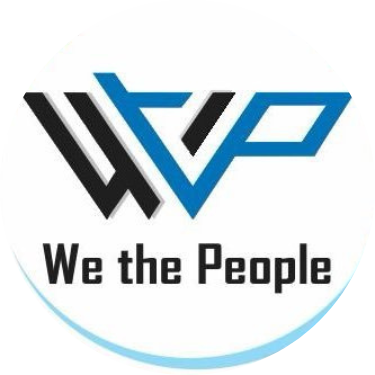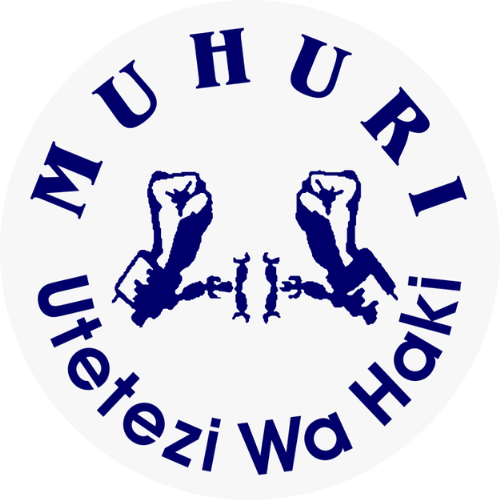People’s Health Tribunal – Verdict
Context
Following several months of preparation to document the violent practices of Shell and Total, communities from Uganda, Mozambique, the Niger Delta and South Africa presented the People’s Health Tribunal with 12 cases that relayed an enormous breadth of violences inflicted by Shell and Total, and underwritten by national governments, multilateral bodies and other non-state actors. The verdict acknowledges that accusations as listed here are only a small sample of the ongoing atrocities in these geographies and beyond.
Broadly, testimonies given across sites where Shell and Total operate coalesce around several important themes: forced displacement, pollution (notably of air, water sources and soils), chronic health conditions, traumatisation, intimidation, and criminalisation. All accounts also portray a troubling capture of state power by these companies, which is frequently used to reinforce the above through both direct violence and murder.
Shell
Royal Dutch Shell stands accused of severe environmental and international human rights violations in both the Niger Delta and South Africa. In the Niger Delta, Shell, alongside Chevron, has been extracting fossil fuels since the 1950s, causing extensive environmental harm, including devastating oil spills, harmful gas flaring, and widespread water pollution.1 These detrimental practices directly threaten the health of all living beings within the ecosystem, and the ecosystem itself, and have caused immense suffering to affected communities.
We listened to testimonies, highlighting the contamination of water and witnessed oil lifted from water wells. Shell refused to release impact assessments, despite community demands. This neglect has led to hunger and poverty as the soil loses its fertility and no longer sustains communities. The Obelle community has become exposed to rising cases of cancers, kidney failure, heart disease, respiratory issues and infertility.
We heard how communities breathe in toxic air and face the ‘panic of possible fire outbreaks’ and carbon hazards. Testimony givers disclosed how family members are facing seizures, spontaneous abortions, eye irritations, heat burns, skin irritations, breathing problems. All this, whilst people’s livelihoods are destroyed as livestock and trees die.
Flooding, exacerbated by climate change caused by unconscionable oil exploration and exploitation, is on the rise in Nigeria. In 2022, more than 600 people were killed and 1.3million people displaced. Niger Delta communities were drowned, houses submerged and destroyed, farmlands washed away and with it people’s livelihoods. People have been stranded in Internally Displaced People camps in terrible conditions with little support.
Resistance to Shell has been met with violence. In a stark display of corporate disregard for human life, Shell was accused in the 1990s of complicity with the Nigerian military, leading to the execution of Ken Saro-Wiwa, an environmental activist, and other innocent individuals. We listened to testimony from the community of Umuechem, who in 1990 decided to take on the exploitation of Shell. They called for talks with the regional manager through peaceful protest. This was followed by Policemen ‘armed to the teeth’ carrying out a ‘shoot-on-sight operation’ as people fled – ‘up to 50 youths lost their lives while escaping into the bushes that day; gunned down by oil politics.’
In spite of this oppressive environment, local organisations, including We the People Nigeria, Health of Mother Earth Foundation (HOMEF), the Movement for the Survival of the Ogoni People (MOSOP), and Environmental Rights Action (ERA), have courageously fought against the extractive violence of these fossil fuel projects.
In South Africa, Shell has not only shown a similar disregard for the environment, but also for indigenous cultural heritage. Its planned offshore exploration using damaging seismic waves was halted by a South African court following tireless protest by local groups. Shell’s planned exploration off the Wild Coast is a direct threat to the health of people living in local communities, for whom the ocean is not only a food source easily disrupted by extractive activities, but a source of deep spiritual connection.
The health impacts of extractive policies on the sacred bond between people and the environment that hosts/sustains them are not readily captured in contemporary narrow biomedical models, but Indigenous nations across the world have repeatedly drawn attention to the dire consequences on the well-being of communities when communion with land is disrupted or distorted.
The Xhosa people alongside groups such as the Amadiba Crisis Committee and the Mpondo community, have shown remarkable resilience, fighting to preserve their environment and their way of life. Despite facing intimidation and violence, their resistance has resulted in significant victories, such as the aforementioned revocation of Shell’s exploration licence in South Africa. The people have won before and will win again!
Total
TotalEnergies is currently involved in deeply troubling environmental and human rights abuses in both Uganda and Mozambique. In Uganda, Total leads the development of the East African Crude Oil Pipeline (EACOP), which will transport crude oil across 1,400 kilometres from Uganda to Tanzania. The proposed path for the EACOP crosses sensitive ecosystems and indigenous lands, posing significant risks to local agriculture, fishing industries, and community health. Notably, the Ugandan government’s 2019 issuance of Land Acquisition Notices has led to the displacement of approximately 14,000 households, underscoring the severe human and cultural costs of this project.
From Uganda, we listened to testimonies of displacement, dispossession, intimidation, loss of livelihoods and deterioration in health. Families and communities have been uprooted from their ancestral homes with no compensation. People’s livelihoods have been destroyed by displacement, resulting in families finding it difficult to pay any school fees, basic necessities, access to healthcare and medication. The loss of land has led to a ‘proliferation of famine, poverty and family breakage’.
Despite ongoing legal challenges and substantial opposition, Total announced in 2022 their decision to move forward with construction. Total came with promises to improve standards of living but with the development of EACOP, but instead, the testimony givers shared how “we are landless and are the poorest in the country”. As the testimonies shared, resistance efforts, spearheaded by the StopEACOP campaign, often face violence and intimidation.
In Mozambique, Total has launched a project which will emit a level of methane that will increase the greenhouse gas emissions of the whole country by up to 14%, in a country already exceedingly vulnerable to climate change. Total’s ventures in Mozambique have been marked by exploitation and severe international human rights abuses. The company’s pursuit to extract a staggering 65 trillion cubic feet of natural gas by 2024 is fraught with socio-economic risks, especially considering the region’s ongoing instability, which has been exacerbated by the “Tuna Bond Scandal” in 2016 triggering an economic crisis.
Adding to the distress, the construction of the Afungi Liquified Natural Gas park has led to the forceful eviction of 557 households. Fishing communities who had been living mere metres from the ocean for generations were displaced to a “relocation village” more than 10km inland, with no way of accessing the sea. Farmers who had now lost their land, were given small, inadequate pieces of land far from the relocation houses they had been relocated to. As a result, these communities have lost their livelihoods and have been left destitute.
TotalEnergies, as part of the gas industry, has been linked to violent conflict between insurgents,armed forces, and mercenaries. So far, this conflict has displaced 1 million people, as well as resulting in extortion, hostage taking, threats to families, sexual assault, and beyond.
Following a major insurgent attack on Palma village—the nearest large village to the Afungi Park—in March 2021, TotalEnergies abandoned the area and ongoing processes with the communities, claiming ‘force majeure’. They paused the project indefinitely, stopping all compensation payments. In funnelling revenues through subsidiaries in tax havens, TotalEnergies has also avoided paying significant tax in the country.2 Meanwhile, its operations have resulted in devastating economic impacts for communities.
Both cases highlight TotalEnergies’ contempt for the environment and international human rights in their quest for profit. The company’s actions have precipitated widespread ecological damage, displaced thousands of local inhabitants, and are associated with serious international human rights abuses.
Guiding principles
This process recognises and locates itself within an expansive history of organising and resistance against extractivism globally.3
1. Accountability to affected communities
This verdict and the process is first and foremost accountable to affected communities, who have given testimony. We recognise that this is a live process, rather than an event that can be isolated and examined. The verdict builds on the experiences of the judges and explicitly in dialogue with communities who participated in the tribunal.
2. Health
Health is understood in its most expansive sense. This means health is not only a complete state of physical, mental, social wellbeing as it pertains to the individual, but is collective, ecological, cultural and spiritual. From here, we reaffirm the universal right to such health.
3. Land, language and liberation
We are guided by practices and liberatory epistemologies of Indigenous, land-based and water-based peoples, and affirm the deep relationship of these peoples with and the right to self-determination of their ancestral lands, from which their cultures and languages also flow.
4. Limitations of international aparatuses
We denounce the double standards of the international status quo built upon the continuing oppression and genocide of people of Indigenous and African ancestry. The United Nations Security Council, wielding its disproportionate veto power, exposes this two tier system in the inconsistency between its policies and actions. This discrepancy has been set out in the High-Level Panel on Threats, Challenges and Change (2004) and is further underwritten by the nonexistence of an authentically functional international mechanism – legal or otherwise – to hold governments and institutions accountable.
5. Dismantling of hegemonic systems of power
We acknowledge the mutually reinforcing matrices of hegemonic power that scaffold the ideologies of extraction and domination central to the practices of Shell and Total – namely colonial racial capitalism and the ableist cis-heteropatriarchy – and the need to dismantle these systems.
6. New practices of world making
We recognise and sit in the tension between building principles for collectively liberated futures while materially strategising to transform the present realities we occupy. We are guided by a balance of these. This includes acknowledging the limitations of electoral ‘democracies’ and the criminal ‘justice’ system – and their failure to deliver any meaningful justice. We honour and hold that vision of a world where corporations like Shell and Total no longer exist. The completion of the full reparations process outlined below would likely lead to the end of the existence of Shell and Total as entities.
Ruling
For the acts cited above, we find Shell – accountable through its previous and present boards of directors – guilty for its activities in the Niger Delta and in South Africa, which we find to be extremely harmful to the livelihoods, health, right to shelter, quality of life, right to live in dignity, quality of environment, right to live free of discrimination and oppression, right to clean water, and right to self-determination of the impacted communities.
For the acts cited above, we find TotalEnergies guilty for its activities in Mozambique and in Uganda, which we find to be extremely harmful to livelihoods, health, right to shelter, quality of life, quality of environment, right to live free of discrimination and oppression, right to clean water, and right to self-determination of the impacted communities.
We find the Governments of the United Kingdom, Netherlands and France guilty for supporting and promoting the egregiously harmful and irresponsible oil and gas investment and extractivism in Sub Saharan Africa.
We find the governments of Mozambique, South Africa, Uganda, and Nigeria guilty of being complicit and irresponsible for failing to establish and enforce legislation, regulations, and monitoring and enforcement to protect the rights of its people.
We also find institutions such as International Monetary Fund, the World Bank and World Trade Organisation that make up the predatory international financial architecture guilty of creating conditions, through its policies and practices, that compromise the economic freedom of nations as well as families who are saddled with mandatory school fees, for example, due to structural adjustment programs, the Energy Charter Treaty and Investor State Dispute Settlements.
We propose that the systematic large-scale direct and social murder – whether through miltary and para-military violence (as shared in testimonies from Mozambique), deleterious health impacts of extractivist practices (such as the pollution of water sources highlighted in testimonies from Ogoniland, Niger Delta) or indeed the downstream impacts of the climate crisis (such as flooding, again described in the Niger Delta) constitutes effective genocide,4 in addition to ecocide.
Demands/recommendations
Demands to Shell & Total
STOP
- All active plans for expansion of existing fossil fuel extraction sites, and place a permanent moratorium on exploration for new sites.
- Collusion with and funding of military and paramilitary groups, and deployment of private security forces in harassment and abuse towards local communities, and to guarantee no repetition of this in the future.
START
Creating the infrastructure for reparative justice process
- We demand public admission of guilt and the start of a process of reparative justice. Impacted communities must lead on what exactly this constitutes. Tentative suggestions include:
- Immediate mediation sessions with affected communities for transformative justice. Corporations pay all fees, ensure mediation is in local Indigenous languages and document the process. Mediation is led by affected communities with international observers selected by these communities, and clear demands on how to proceed.
- One outcome may be a People’s trial of the board of directors of the companies and the relevant UK/French government officials.
Supporting steps towards health justice for local communities
- Finance an independent health audit longitudinally (i.e. over several generations) in affected communities to map the health impacts of fossil fuel extraction.
- Meaningful financial compensation, pending the review of financial records for decision on final penalty amounts for each community.
- Requisite and indefinite access to emergency and long-term healthcare for all those living and/or working within the area of fossil fuel extraction – with no burden of proof on communities to demonstrate ill-health as linked to fossil fuel extraction.
- Fund local public research infrastructures to collect social epidemiological data on effects of fossil fuel extraction.
Repairing the impacts of forced displacement
- Where communities have been displaced but no construction of extractive infrastructure has started, their land and associated resources are returned immediately.
- Where immediate return is not possible due to ongoing fossil fuel extraction and its associated impacts, there is adequate compensation for loss of housing, land, livelihood and infliction of trauma and ill health, in addition to indefinite provision of safe, high-quality housing.
Clean-up and remediation of territories including affected air, waters and lands
- Finance a rigorous, independent environmental and health impact assessment with all the data freely and publicly available.
- Existing fossil fuel infrastructure must be safely dismantled and removed, minimising further ecological harm.
- Clean-up must adhere to international or company-home country environmental quality standards (EQS) – whichever is more stringent. This also includes restoring as much as possible the territories to the way they were found before the extraction.
- Where so desired by community members, there is an all expenses-covered relocation of all those who wish to leave the area for the duration of cleaning, clearing and decontamination, and provisions to return once the land is safe to inhabit.
Recognising local sovereignties and realising the demands of local campaigns
- In Uganda, we call on Total to stop the East African Crude Oil Pipeline, as per the locally and internationally supported StopEACOP campaign.
- In the Niger Delta, we call on Shell to categorically meet the demands put forward in the Niger Delta Manifesto for Socio Ecological Justice.
Fund and cooperate with all conditions of a just transition5
- Commit to local energy justice for the period of transition on the terms of local communities, and a just transition to decent and quality jobs for all workers, addressing their needs as outlined in “A Strategic Framework for a Just Transition”.
- Compensate communities for the downstream health impacts of climate change caused by the extraction of fossil fuels, in line with independent assessments of culpability such as the Time to Pay Paper.
Demands to goverments and multilateral institutions
A) Goverments of Uganda, Nigeria, South Africa, Mozambique
STOP
- Using tax and land subsidies to line the pockets of fossil fuel corporations who cause immense harm to communities.
- Endorsing any net zero plan that does not prioritise a phasing out of fossil fuels and an associated just transition
- Enabling the police and military forces to intimidate and attack local communities in the name of protecting the interests of fossil fuel corporations or complicit government officials.
- Forbid the use of private security and paramilitary forces by fossil fuel corporations, and guarantee no repetition of violence.
START
Creating the infrastructure for reparative justice
- Fine extractive corporations for the harm and destruction they have caused to communities and their territories over decades in pursuit of fossil fuels. These fines should then be used towards reparative justice for these communities.
- Admit to your state’s active role in enabling fossil fuel violence and start a process for reparative justice by following impacted communities’ lead on what this looks like
- Pay and facilitate for affected Community-led National Reconciliation Dialogue for each community to share their grievances and demands.
- Where demanded by affected communities, honour calls for resignation of ministerial, provincial and local state representatives, and hold new elections.
- Where local communities demanded, design meaningful participatory democratic mechanisms such as people’s trials of officials.
Restoration of land rights
- Restore and protect the practical and legislative land rights of Indigenous and local peoples to their ancestral territories such that they are inalienable.
- Any decisions regarding land use must be made by the local community.
- Guarantee the protection of land defenders and their families.
Restoring territories including affected air, waters and lands
- Create policy and statutory requirements mandating clean-up by polluting corporations, stipulating timescale as agreed by affected communities. Clean-up must adhere to international or company-home country environmental quality standards (EQS) – whichever is more stringent. This includes ensuring corporations restore as much as possible the territories to the way they were found before the extraction.
Taking steps towards health justice
- Finance independent environmental and health impact assessments, by fining polluting corporation(s) for their extractive activities.
- Establish local public research infrastructures to collect social epidemiological data on effects of fossil fuel extraction in affected areas, paid for by polluting corporation(s).
- Recognise the acuity of health need and ensure access to acute and long term healthcare for all those affected by polluting corporations.
Overseeing a People’s just transition
- Led by the demands of affected communities, ensure a transition that maintains energy justice for all and enables transition for local workers employed in fossil fuel industries.
- Communities, workers, states and other stakeholders need to collaboratively arrive at transitions that promote repair, restoration, equity, rights and the common good. Transitions to green energy also need to ensure fair distribution and a priority for energy to serve public needs over profit.
B) Governments of UK, Netherlands and France
(countries where these companies are headquartered or with which they are affiliated)
STOP
- Using public money to subsidise fossil fuel corporations
- Giving licences for new fossil fuel projects in the UK, Netherlands and France
- Endorsing any “net zero” plan that does not prioritise a phasing out of fossil fuels and an associated just transition
- Using international political and economic power to support the legal and extra-legal mechanisms which maintain and enable the violence of Shell and Total
START
Taking responsibility for actions of Shell and Total
- Financially compensate affected frontline communities and engage in the process of reparative justice as demanded by affected communities.
- Order each company to cover the expenses of international awareness campaigns (run by grassroots organisations) on their fatal extractive policies and practices.
To use national laws to hold Shell and Total accountable
- Legally enforce the above recommendations targeted towards Shell and Total using national and international law.
To comply with the demands of movements for reparative justice
- Engage in an independent assessment of the impact of colonialism and neo-colonialism on communities in Africa, led by African reparations scholars and local communities. This should include an assessment of the ongoing health impacts of resource extraction and the climate crisis for which countries such as the UK, Netherlands and France are significantly responsible. We look to the coalitional demands of Reparations UK (https://climatereparations.uk/#demands) as a starting point.
Overseeing a People’s just transition
- Communities, workers, states and other stakeholders need to collaboratively arrive at transitions that promote repair, restoration, equity, rights and the common good. Transitions to green energy also need to ensure fair distribution and a priority for energy to serve public needs over profit.
C) Multilateral agencies
STOP
- The litigation or threat of litigation by fossil fuel corporations, or by countries headquartered companies, through the Investor-State Dispute Settlement (ISDS) and related mechanisms. In addition, we specifically call for the withdrawal of the Energy Charter Treaty.
START
Recognition of fossil fuel corporate war crimes, genocide and ecocide
- UN (and specifically the Office on Genocide Prevention and Responsibility to Protect) to interrogate and redefine genocide as constituted by outcome, rather than intent.
Recognition of fossil fuel settler colonialism
- UNHCR to recognise the rights of those displaced due to extractive industries, under the term internally displaced person.
International legal accountability of fossil fuel corporations
- Initiate legal proceedings under the international criminal court against fossil fuel corporations and/or their executives for crimes against humanity.6
Tie demands to membership of multilateral organisations or unions
- Multilateral agencies to tie right to membership with an obligation to fulfil reparative demands – e.g. need for designated budget allocated for holistic reparations for affected communities by past, current and future unforeseeable impacts of these criminal corporate agendas and practices. Right to impose member suspension until demand is met.
Recommendations to movements
STOP
- Endorsing ‘green capitalism’ and continued colonial extraction for renewable energy.
START
Nurturing internationalist solidarity across struggles
- Grow and strengthen south-south/south-north relationships with a commitment to deep mutual learning and building power to take collective action.
- Explicitly connect and organise across struggles – recognising that these are all driven by the same power systems described above.
Using traditional accountability mechanisms
- Identify lawyers practising international law to advance class action lawsuits against the Shell and Total through the International Criminal Court and/or otherwise.
- Identify and exploit potential for shareholder action against Shell and Total, and those that fund them.
Committing to propositional organising
- This commitment calls for a reimagining of political institutions and the movements they are accountable to. This means not only working towards the total dismantling of the hegemonic power systems described above, but organising to build ‘life-affirming’7 ecosystems of policies and actions that do not safeguard the vulnerable from exploitation but prevent them from becoming exploitable in the first place.
Notes
1. UNEP Environmental assessment of Ogoniland (2011): https://wedocs.unep.org/20.500.11822/7947
2. https://thewire.in/world/oil-and-gas-multinational-total-is-making-a-mess-in-mozambique
3. The verdict builds on the following international instruments, as highlighted by a previous Tribunal Popular Internacional de Salud: the Inter-American Commission on Human Rights’ American Declaration on the Rights and Duties of Man (1948), the International Covenant on Economic, Social and Cultural Rights (1966), the Declaration of Alma-Ata (1977), the World Health Organization’s Ottawa Charter for Health Promotion (1986), the Protocol of San Salvador (1988), Convention 169 of the International Labour Organization (1989), the Declaration for People’s Health (2000), the Bangkok Charter for the Promotion Health in a Globalized World (2005), and the United Nations Declaration on the Rights of Indigenous Peoples (2007).
4. Within the 1948 Convention on the Prevention and Punishment of the Crime of Genocide, the definition of genocide is put forward as:
“any of the following acts committed with intent to destroy, in whole or in part, a national, ethnical, racial or religious group, as such:
1. Killing members of the group;
2. Causing serious bodily or mental harm to members of the group;
3. Deliberately inflicting on the group conditions of life calculated to bring about its physical destruction in whole or in part;
4. Imposing measures intended to prevent births within the group;
5. Forcibly transferring children of the group to another group.”
This definition of genocide necessitates ‘intent’. However, we believe the actions of Shell and Total amount to wilful ignorance that in practice constitutes intent.
5. The guiding framework for the just transition referred to here builds on that set out by Movement Generation here: https://movementgeneration.org/wp-content/uploads/2016/11/JT_booklet_English_SPREADs_web.pdf
6. For more information, see: https://www.greenpeace.org/static/planet4-netherlands-stateless/2023/03/f9f5d5b6-inventory-of-crimes.pdf
7. We intentionally draw this phrase from the work of prison abolitionist Dr Ruth Wilson Gilmore.







